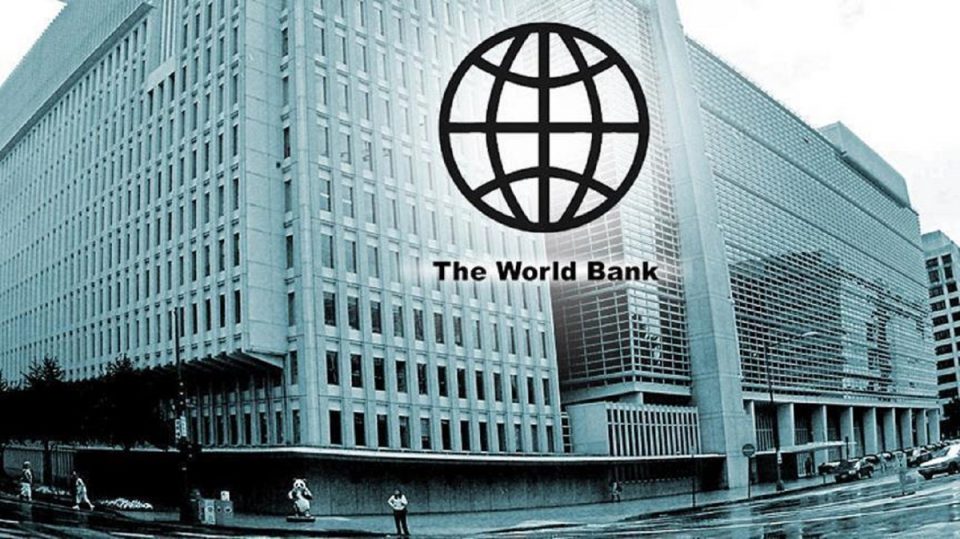The World Bank and the International Monetary Fund (IMF) see prospects in the removal of trade barriers and incentives for higher production as the risk of stagflation spreads across the global community.
This comes as the World Bank raises Nigeria’s 2022 economic growth prospect to 3.4 per cent – 0.9 percentage points higher than 2.5 per cent contained in its January Global Economic Prospect. The growth is expected to slow down to 3.2 per cent next year through 2024, which is also higher than its earlier position by 40 basis points.
Nigeria’s growth projection for the year deviates slightly from sub-Saharan Africa’s 3.7 per cent and it is also a moderate top-up of Q1’s 3.11 per cent growth rate.
The World Bank’s June Global Economic Prospects report says rising inflation and policy tightening are offsetting the impact of favourable commodity prices on the economy of Nigeria.
Global growth is expected to slump from 5.7 per cent in 2021 to 2.9 per cent in 2022 – significantly lower than 4.1 per cent that was anticipated in January. It is expected to hover around that pace from 2023 to 2024 as the war in Ukraine disrupts activity and pent-up demand fades while fiscal and monetary policy accommodation is being withdrawn.
“Elevated oil prices are supporting activity in Angola and Nigeria — the two biggest oil-producing economies in the region (SSA). Growth in Nigeria strengthened in the first half of the year, driven by increased oil revenues and a strong recovery in non-oil sectors, the country’s main port following severe floods has exacerbated supply chain disruptions related to Russia’s invasion of Ukraine and mobility restrictions in China in response to pandemic outbreaks. Although the fiscal position has improved somewhat, high public debt constraints public spending, particularly investment,” says the World Bank.
The World Bank says countries must brace up for the threat of stagflation but notes that an increase in production and reduction of trade restrictions could help to moderate the prices of essentials and save the situation. It called on countries to reduce trade barriers as deliberate actions to prevent supply chain disruptions.
“The war in Ukraine, lockdowns in China, supply-chain disruptions, and the risk of stagflation are hampering growth. For many countries, a recession will be hard to avoid,” the World Bank Group President, David Malpass, said.
“Markets look forward, so it is urgent to encourage production and avoid trade restrictions. Changes in fiscal, monetary, climate and debt policy are needed to counter capital misallocation and inequality,” he added.
The World Bank says countries must brace up for the threat of stagflation but notes that an increase in production and reduction of trade restrictions could help to moderate prices and save the situation. It called on countries to reduce trade barriers as deliberate actions to prevent supply chain disruptions.
Global growth is expected to slump from 5.7 per cent in 2021 to 2.9 per cent in 2022 – significantly lower than 4.1 per cent that was anticipated in January. It is expected to hover around that pace over from 2023 to 2024 as the war in Ukraine disrupts activity and pent-up demand fades while fiscal and monetary policy accommodation is being withdrawn.
In their separate reports, the Bretton Woods institutions acknowledge that the fear of stagflation, an economic challenge characterised by stagnated growth and high rising prices, is real and that rising prices of energy and foods could push more people into poverty, especially in low-income countries.
In a report on ‘Fiscal Policy for Mitigating the Social Impact of High Energy and Food Price’ blogged, yesterday, IMF points out that the surge in energy and food prices that started about two years ago represents a term of trade loss for importing countries’ real income to those at the bottom of wealth distribution.
The Fund says the government must balance access to food and energy with policy normalisation after protracted experimentation of usual interventions to combat the impacts of the COVID-19 pandemic. It recommends specific policy options for countries with strong social safety nets (SSNs), those with weak SSNs and without existing energy/food subsidies as well as others with weak SSNs and existing energy/food subsidies.
The first category is advised to, among other things, allow a full pass-through of higher international fuel prices to domestic users while providing targeted and temporary cash transfers to vulnerable households.
Where existing SSNs do not benefit middle-class households, IMF suggests one-off cash payments and energy bill discounts. Where applicable, it also encourages governments of countries with weak SSNs to consider child benefits as well as reduce education, health and transportation costs while strengthening their safety net programmes.
“Food takes up a considerably higher share of the consumption basket in low-income households than high-income households. For an average household in a low-income country, food expenditure can take up to 44 per cent of the consumption basket (compared with 28 percent in emerging market economies and 16 per cent in advanced economies, and therefore the contribution of food to inflation in these countries is particularly high.
“Within a country, for example in the United States, 27 per cent of household spending in the poorest income quintile goes to food compared with 7seven per cent among the richest income quintile. With about 800 million people undernourished in 2020 (10 per cent of the world population), higher food prices put further pressure on many households already made fragile by the pandemic. The share of energy in the consumption basket is higher, on average, for higher-income households. The composition of the energy basket differs by product and across regions,” IMF notes.




